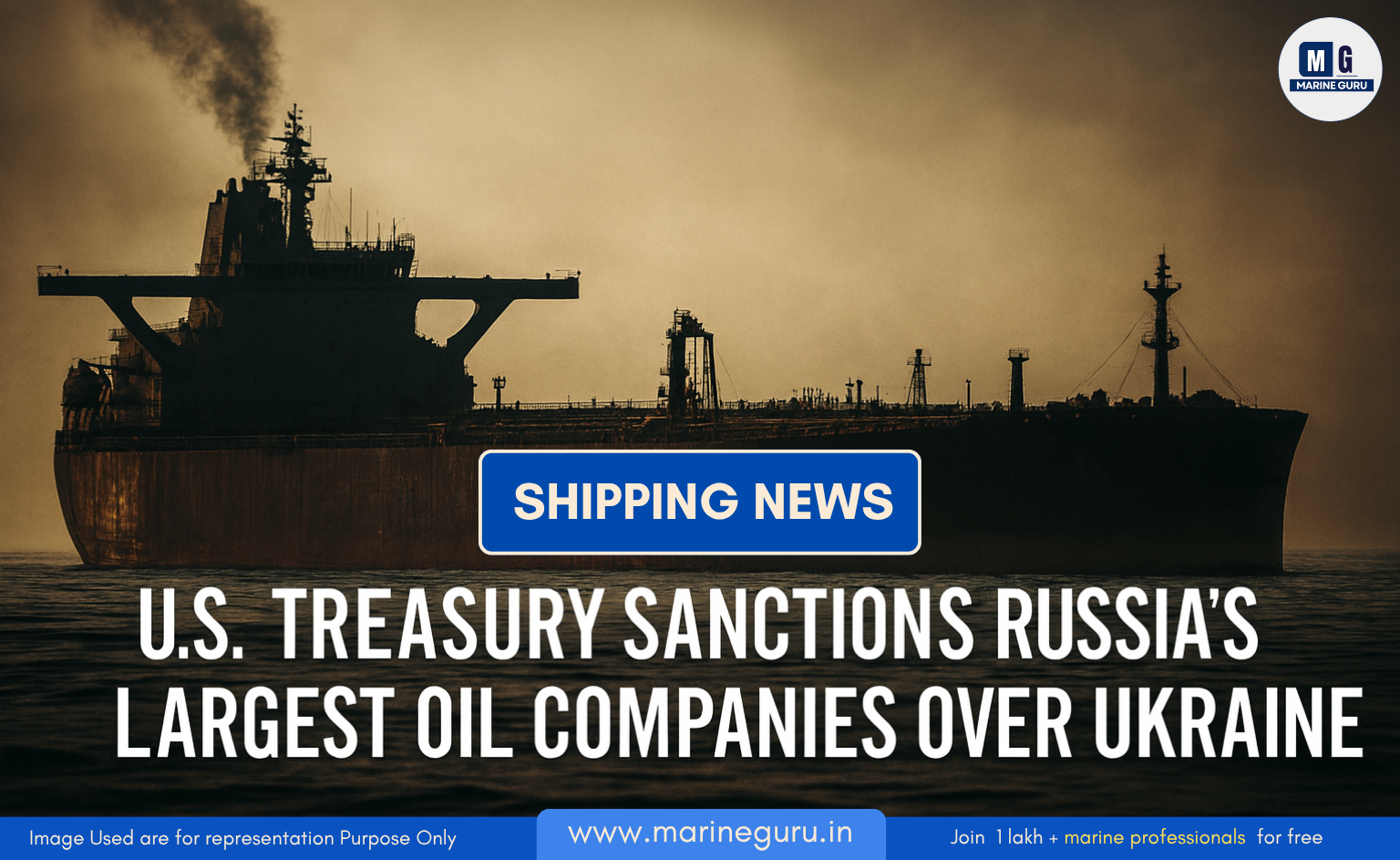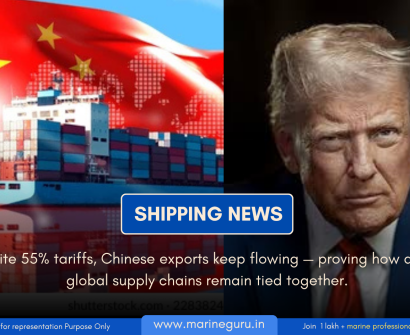“Cutting Off the Lifeline” — U.S. Sanctions Russia’s Oil Giants Rosneft and Lukoil Over Ukraine

Originally reported by Mike Schuler for gCaptain, referencing U.S. Treasury and Bloomberg News releases.
Simplified and rewritten for clarity by MarineGuru (www.marineguru.in).
A Major Economic Strike from Washington
On October 22, 2025, the U.S. Department of the Treasury announced sweeping sanctions on Russia’s two largest oil companies — Rosneft and Lukoil — in direct response to Moscow’s continued aggression in Ukraine.
The move marks the first major sanctions package against Russia under the current Trump Administration, signaling a renewed effort to pressure the Kremlin through its energy exports.
What was expected to be a diplomatic opening — a meeting between Presidents Donald Trump and Vladimir Putin — was abruptly canceled a day before, setting the stage for this hard economic measure.
The Sanctions Explained
Secretary of the Treasury Scott Bessent described the action as a necessary step to “stop the killing and push for an immediate ceasefire.”
“Given President Putin’s refusal to end this senseless war,” Bessent said,
“Treasury is sanctioning Russia’s two largest oil companies that fund the Kremlin’s war machine.”
The sanctions were imposed under Executive Order 14024, which authorizes restrictions on entities operating within the Russian energy sector.
Both Rosneft and Lukoil were designated under this order, freezing their assets under U.S. jurisdiction and banning all business with U.S. persons or companies.
What Happened — In 3 Key Points
- Major Oil Giants Targeted:
The U.S. Treasury sanctioned Rosneft and Lukoil, Russia’s largest energy firms, cutting them off from the global dollar system. - Global Coordination:
The move follows UK sanctions announced on October 15 and precedes the EU’s 19th sanctions package, which is set to target Chinese entities aiding Moscow. - Economic Impact:
Rosneft and Lukoil together export 3.1 million barrels of oil per day — nearly half of Russia’s total production — meaning these sanctions hit the Kremlin’s primary revenue stream.
A Coordinated Western Front
This U.S. action comes amid growing alignment among Western powers. The UK imposed 90 new sanctions earlier in October, directly hitting Russian refineries and energy subsidiaries.
The European Union is preparing its 19th sanctions package, which will — for the first time — target Chinese companies accused of helping Russia bypass restrictions. The new measures could ban Russian LNG imports to Europe by 2027, representing the toughest European stance to date.
These coordinated steps signal a shared intent to drain Russia’s war funding by choking its oil and gas exports, the economic backbone of the Putin regime.
Deep Reach: Subsidiaries and Secondary Sanctions
The U.S. Treasury’s Office of Foreign Assets Control (OFAC) extended the designations to dozens of Rosneft and Lukoil subsidiaries, including those operating refineries, pipelines, and overseas trading units.
All entities owned 50% or more by either company are automatically sanctioned under OFAC’s “50 Percent Rule.”
Additionally, foreign financial institutions that conduct or facilitate significant transactions with these companies face secondary sanctions, potentially cutting them off from the U.S. banking system.
Violations can trigger civil and criminal penalties, with enforcement carried out on a strict liability basis — meaning intent does not need to be proven.
Escalation and Uncertainty Ahead
Treasury Secretary Bessent warned that Washington is “prepared to take further action if necessary” and urged allies to maintain unity.
For the maritime and energy shipping sectors, the implications are significant. With Rosneft and Lukoil tankers accounting for a large portion of Russian oil flows, shipowners, insurers, and charterers face increasing compliance risks.
Oil trading routes are likely to shift toward Asia, while global tanker utilization may decline as Western ports tighten restrictions.
🛟 The Wake Left Behind
For the maritime industry, these sanctions mark another major shift in global oil logistics.
Tanker operators now face a growing patchwork of sanctions, insurance limits, and compliance hurdles that make voyage planning increasingly complex.
Energy traders will reroute cargoes, but the human and economic toll of war remains the central tragedy.
At sea, every sanction and blockade echoes through shipping corridors, affecting seafarers, insurers, and entire supply chains.



